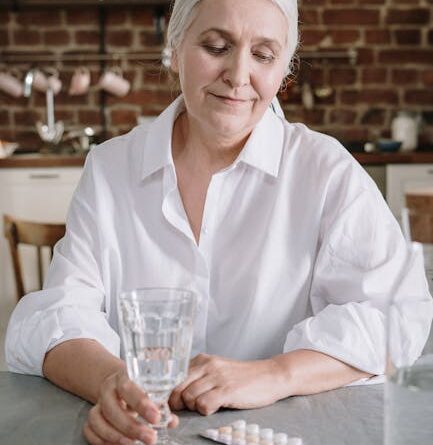Quick Relief for Hemorrhoids: Home Treatments and Prevention
Quick Relief for Hemorrhoids: Home Treatments and Prevention
Hemorrhoids are a common and often painful condition that affects millions of people worldwide. While they can be uncomfortable, the good news is that there are several effective home treatments that can provide quick relief, as well as preventive measures to help you avoid them in the future. In this post, we’ll explore various home remedies and preventive strategies to manage and prevent hemorrhoids, ensuring you lead a more comfortable and healthy life.
Understanding Hemorrhoids
Hemorrhoids, also known as piles, are swollen veins in the lower part of the rectum and anus. They can be internal or external, with internal hemorrhoids located inside the rectum and external ones under the skin around the anus.
Causes of Hemorrhoids
Several factors can contribute to the development of hemorrhoids, including:
- Straining during bowel movements
- Chronic constipation or diarrhea
- Prolonged sitting on the toilet
- Obesity
- Pregnancy
- Low-fiber diet
Home Treatments for Quick Relief
If you’re suffering from hemorrhoids, there are several home remedies that can provide quick relief from the discomfort and pain. Here are some of the most effective treatments:
Sitz Baths
A sitz bath involves soaking the affected area in warm water for 15-20 minutes, several times a day. This can help reduce swelling and relieve pain. You can use a special sitz bath basin or simply sit in a bathtub with a few inches of warm water.
Cold Compresses
Applying a cold compress or ice pack to the affected area can help reduce swelling and numb the pain. Be sure to wrap the ice pack in a cloth to avoid direct contact with the skin, and apply it for 15-20 minutes at a time.
Over-the-Counter Treatments
There are several over-the-counter creams, ointments, and suppositories available that can help relieve hemorrhoid symptoms. Look for products that contain hydrocortisone or witch hazel, as these can help reduce inflammation and provide relief from itching and pain.
High-Fiber Diet
Eating a high-fiber diet can help soften your stool, making it easier to pass and reducing the need to strain during bowel movements. Aim for at least 25-30 grams of fiber per day, which can be found in fruits, vegetables, whole grains, and legumes. You may also consider taking a fiber supplement if you’re not getting enough fiber from your diet.
Stay Hydrated
Drinking plenty of water is essential for maintaining regular bowel movements and preventing constipation. Aim for at least 8-10 glasses of water per day to help keep your digestive system functioning smoothly.
Avoid Straining
Straining during bowel movements can exacerbate hemorrhoids. To avoid straining, try to go to the bathroom as soon as you feel the urge, and avoid sitting on the toilet for prolonged periods. If you’re having trouble passing stool, consider using a stool softener to make the process easier.
Preventing Hemorrhoids
While home treatments can provide relief from hemorrhoids, it’s also important to take steps to prevent them from occurring in the first place. Here are some effective strategies for preventing hemorrhoids:
Maintain a Healthy Diet
A diet rich in fiber can help prevent constipation and reduce the risk of developing hemorrhoids. Include plenty of fruits, vegetables, whole grains, and legumes in your diet, and consider taking a fiber supplement if needed.
Stay Active
Regular physical activity can help promote healthy digestion and prevent constipation. Aim for at least 30 minutes of moderate exercise, such as walking, swimming, or cycling, most days of the week.
Avoid Prolonged Sitting
Sitting for long periods, especially on the toilet, can put pressure on the veins in your rectum and anus, increasing the risk of hemorrhoids. Take regular breaks to stand and move around, and avoid sitting on the toilet for extended periods.
Practice Good Bathroom Habits
Going to the bathroom as soon as you feel the urge and avoiding straining during bowel movements can help prevent hemorrhoids. If you’re having trouble passing stool, consider using a stool softener or laxative to make the process easier.
Stay Hydrated
Drinking plenty of water is essential for maintaining regular bowel movements and preventing constipation. Aim for at least 8-10 glasses of water per day to help keep your digestive system functioning smoothly.
When to See a Doctor
While home treatments can be effective for relieving hemorrhoid symptoms, there are times when you may need to seek medical attention. You should see a doctor if:
- You experience severe pain or bleeding
- Your symptoms don’t improve with home treatments
- You have a prolapsed hemorrhoid (one that sticks out of the anus and can’t be pushed back in)
- You experience changes in bowel habits or notice blood in your stool
Your doctor can recommend additional treatments, such as prescription medications, rubber band ligation, sclerotherapy, or surgery, depending on the severity of your hemorrhoids.
Conclusion
Hemorrhoids are a common and often painful condition, but there are several effective home treatments that can provide quick relief and help prevent them from occurring in the future. By maintaining a healthy diet, staying active, and practicing good bathroom habits, you can reduce your risk of developing hemorrhoids and lead a more comfortable and healthy life. If your symptoms persist or worsen, be sure to seek medical attention for further evaluation and treatment.
Remember, you’re not alone in dealing with hemorrhoids, and there are many resources and treatments available to help you find relief. Take the first step towards managing your hemorrhoids today by trying some of these home remedies and preventive strategies, and don’t hesitate to reach out to a healthcare professional if needed.

